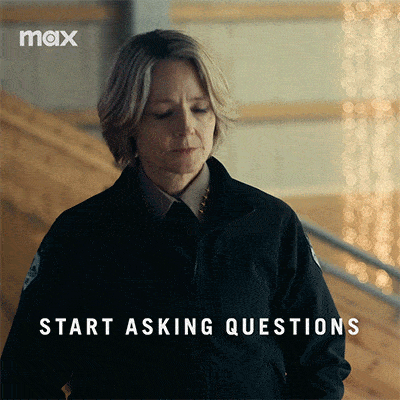- Blue Church Book
- Posts
- The Paradox of Faith and Questions: Finding Truth in the Tension
The Paradox of Faith and Questions: Finding Truth in the Tension


The Paradox of Faith and Questions: Finding Truth in the Tension
For many Christian professionals, anxiety and stress often stem from an inner struggle between faith and doubt. We might fear that asking hard questions about what we believe makes our faith weaker or exposes us to spiritual failure. Yet, questioning can be one of the most profound acts of faith. Why? Because it assumes there is a truth worth seeking—and that God invites us into this search.
Let’s explore how questioning and faith are not opposites but partners in our growth as Christians.
The Faith to Question
It may seem counterintuitive, but questioning requires faith. To ask, “Why does this happen?” or “What does God want for my life?” presupposes that there is a truth, and that truth can be found. The Bible models this over and over:
In the Psalms, David repeatedly asks questions like, “How long, O Lord?” (Psalm 13:1).
Job questions God’s justice amid his suffering, yet his questions drive him deeper into his relationship with the Creator.
Even Thomas, often called “the doubter,” asked for proof of Jesus’ resurrection and was met with compassion, not condemnation (John 20:27).
As St. Augustine said, “Faith is to believe what you do not yet see; the reward of this faith is to see what you believe.” Faith gives us the courage to wrestle with the unknown, trusting that God’s truth can withstand even our toughest questions.
Questions as a Path to Growth
Scientific studies show that curiosity is a powerful driver of learning and creativity. In fact, research from the University of California1 suggests that asking questions activates parts of the brain associated with memory and decision-making, helping us process complex information more effectively.
The same principle applies to our spiritual lives. When we challenge assumptions, re-examine long-held beliefs, or wrestle with doubts, we engage in a process of spiritual growth. St. Gregory of Nyssa described it this way: “Sin happens whenever we refuse to keep growing.” Refusing to ask questions or confront doubts can stunt our spiritual maturity.
Balancing Faith and Questions
Asking questions can feel risky, especially when anxiety and stress are involved. But Scripture reminds us that God welcomes our honest struggles. Jesus said, “Ask, and it will be given to you; seek, and you will find; knock, and it will be opened to you” (Matthew 7:7).
Here’s how to approach questioning in a way that strengthens your faith:
Anchor Yourself in God’s Character: Trust that God is not threatened by your questions. His truth is unchanging, even when your understanding evolves.
Seek Guidance: Surround yourself with wise counsel—mentors, pastors, or spiritual friends who can help you process your doubts. (Merely posting questions to Facebook and social media for random friends is NOT enough.)
Stay Rooted in Prayer: As you question, invite God into the process. Prayer transforms questioning from mere intellectual exercise into an act of communion with Him.
Faith Beyond Certainty
There’s a profound paradox here: Faith doesn’t eliminate questions—it gives you the courage to face them. As Christian professionals, this tension can feel especially challenging when work, family, and personal struggles demand certainty and control. But true faith acknowledges that we don’t have all the answers. Instead, it trusts the One who does.
As St. Anselm famously said, “I believe so that I may understand.” Faith isn’t the absence of doubt; it’s the foundation that allows us to explore the unknown with confidence.
Living with Faith and Questions
If you’re feeling anxious or overwhelmed, remember this: Your questions are not a sign of weak faith. They’re a sign that you are engaging with God on a deeper level. Lean into the paradox. Challenge your beliefs. Re-examine your assumptions. But do so with the faith that truth is not only real but also worth pursuing.
As you navigate the pressures of work, relationships, and faith, may your questions lead you closer to the ultimate Truth—Jesus Christ, who said, “I am the way, and the truth, and the life” (John 14:6).
1 "The Wick in the Candle of Learning: Epistemic Curiosity Activates Reward Circuitry and Enhances Memory"
Authors: Kang, M. J., Hsu, M., Krajbich, I. M., et al.
Institution: University of California
Summary: This study demonstrates how curiosity-driven inquiry (e.g., asking questions) activates reward circuits in the brain, including the ventral striatum and dopaminergic pathways, which are closely tied to memory enhancement and motivation. Participants exhibited improved retention of information associated with high curiosity. The findings underscore how curiosity fosters deeper engagement and better cognitive outcomes.
Source: Psychological Science, 2009
Key Insight: By asking meaningful questions, learners can activate neural systems that optimize information retention and decision-making capabilities.